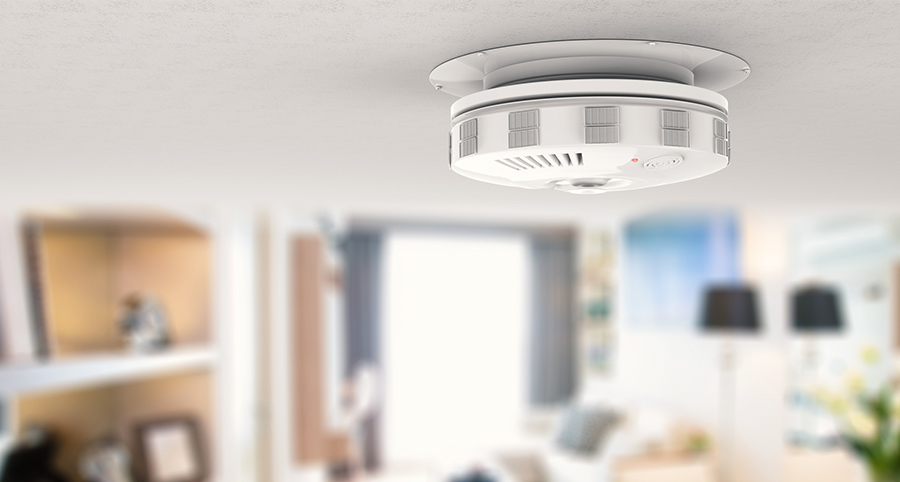What's the difference between standard smoke detectors vs. monitored fire alarms in Tyler?

In the Tyler smoke detector vs. monitored fire alarm debate, it's clear that a monitored fire alarm is the superior alternative"> for your home. Smoke detectors are an essential line of defense in shielding your house from emergency situations, but they have several drawbacks. Conversely, monitored fire alarms provide more means to discover a potentially dangerous situation and may reach out to help when the unthinkable happens. Connecting your fire alarms to a comprehensive smart home also brings out many other benefits that your common smoke detectors could only wish for.
Your ordinary smoke alarms in Tyler might be falling short
Protecting your home from fire is a chief concern for homeowners, and smoke detectors perform a vital part in safeguarding your family. Despite that fact, smoke detectors have various limitations. To illustrate, they will only react to smoke, not extreme temperatures. When there is a fire in your house, you would not be cautioned unless the smoke ascends to the smoke detector. Even though there are additional telltale signals of fire -- such as a marked heat increase -- if there's no smoke, you won’t have a triggered smoke detector.
In addition, smoke detectors only beep if they detect an adequate amount of smoke. If a fire creeps along slowly at first, you might not be alerted until the flames are out of control. Various smoke detectors use dual-sensor technology, meaning they will detect smoke from both roaring flames and something less intense. Then when they do go off, it falls to the occupant to notify first responders after exiting the residence.
Monitored fire alarms offer more benefits than ordinary smoke detectors
Even though they look about the same as regular smoke detectors, monitored fire alarms can do much more. When integrated to a comprehensive home security installation, they can:
- Detect fire with different sensor types: Comparable to a traditional smoke detector, your monitored component can trigger from a roaring blaze or smoldering embers. It will resonate a high-decibel warning when it perceives a hazardous situation.
- Discover fire with a rapid heat surge: A monitored fire alarm can even go off if it notices an uncommon increase in heat. Many times, heat arrives in advance of smoke. Added methods to detect a fire leads to additional means to protect your loved ones.
- Warns trained monitoring agents: Fires can happen when you are at your house or not. Either way, your fire alarms will warn your monitoring team, who will rapidly place a call to first responders. When every moment matters, it's comforting to know that someone is always looking out for your house.
- Connects to home automation: Even though the main purpose of a fire alarm is to detect fire and call for assistance, it can also integrate with other automated devices. For instance, a triggered alarm could induce your system to turn on the exhaust fan to impede the spread of fire or turn on smart light bulbs so you are able to find the quickest path out of your home.
Your monitored fire alarms are a key element of a comprehensive smart home
The simplest way to optimize your fire alarms is to connect them with a Vivint home security system. Contact a Vivint specialist today and customize the ideal smart home for your family. Diall (903) 459-7565 or send in the form below to begin.